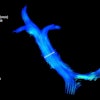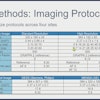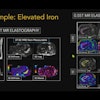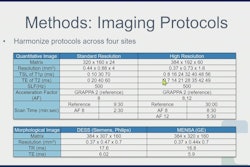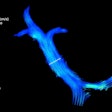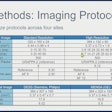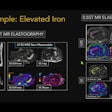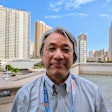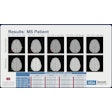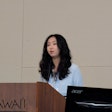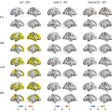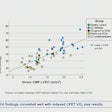Radiologists should embrace the Hawaiian concept of “mālama honua” as they consider the impact of their field on planetary health, according to a presentation at the International Society for Magnetic Resonance in Medicine (ISMRM) meeting.
The phrase means “To care for our island Earth,” and it was the take-home message of Reed Omary, MD, of Vanderbilt University in Nashville, TN, and founder of the Greenwell Project, in a May 14 plenary session dedicated to sustainability in radiology.
“All of us here today, whether we are technologists, whether we are in industry, whether we are graduate students, residents, scientists, engineers, or physicians, we are here to make a difference,” Omary said.
 Reed Omary, MD, discussed planetary health in a May 14 plenary session on sustainability in radiology.Reed Omary, MD, and ISMRM
Reed Omary, MD, discussed planetary health in a May 14 plenary session on sustainability in radiology.Reed Omary, MD, and ISMRM
According to the World Health Organization, climate change is the single biggest health threat facing humanity. The main cause of climate change is fossil fuels, which account for 75% of carbon emissions, Omary noted.
Significantly, if global health care were a country, it would be the fifth largest carbon emitter in the world, and in imaging, the biggest “energy hog” is MRI, he added.
“You might think, as a scientist or an engineer or a practicing physician or a member of industry, why should I care?” Omary said.
In answer, Omary presented a survey on patient perceptions on sustainability conducted by the Greenwell Project last year. The survey included responses from 1,400 patients in U.S. Southwestern “coal country” states, such as Kentucky and Tennessee, he noted. The survey found the following:
- 50% of respondents were “very worried” about the planet.
- 90% of respondents believe waste and pollution harm health.
- 83% of respondents said health care should reduce pollution.
- 61% of respondents said they prefer eco-friendly clinicians.
“So we now have a business imperative if you are in the healthcare system. Let's give them what they need and what they ask for,” Omary said.
One key approach is to develop more focused recruiting practices, Omary said. Specifically, efforts should target Generation Z, individuals between the ages of 13 and 28.
In a survey of 10,000 Gen Zers published in the Lancet Planetary Health in 2024, 67% of respondents said they preferred to work for employers who engage in sustainable processes, and 85% were at least moderately concerned about climate change, Omary reported.
In addition, three-quarters were interested in taking action on climate change at the voting booth, he added.
“We need to recruit those individuals into MRI,” Omary said.
Finally, Omary discussed what we can learn from the World Economic Forum’s Global Risks Report 2025. The report forecasts two- and 10-year global risks identified by 900 experts worldwide, the “the Nobel Prize winners of making money,” Omary said.
According to the report, half of the top 10 concerns of these individuals over the next decade relate to planetary health, specifically extreme weather events, biodiversity loss and ecosystem collapse, critical change to Earth’s systems, natural resource shortages, and pollution, Omary noted.
“If those who make money and want to keep their money are afraid for the planet's health, then we should be too,” he said.
Check out AuntMinnie’s full coverage of ISMRM 2025 here.
